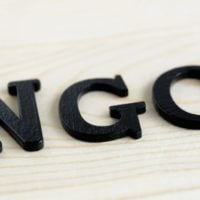Deadline: 10-May-22
The European Commission is calling for proposals for Support Assembly in Kosovo.
In order to increase the transparency of the legislation and the efficiency of the legislative activity, the draft laws, the amendments and the documents supporting the legislative procedure should be accessible through the e-parliament and the legislative tracking system.
In addition, the capacities of the Assembly administration should be strengthened to ensure high quality support for the preparation of the legislation for final adoption. For this purpose, the Directorate for Legal Standardisation, Approximation and Harmonisation has recently been restructured and staffed with, among others, nine lawyers specialised in different legislative areas and also fields of the EU acquis.
Objectives
- The global objective of this call for proposals is to support the Kosovo Assembly to meet the European standards of a well-functioning democratic institution.
-
The specific objective of this call for proposals is:
- The institutional capacities of the Assembly with regard to the EU legal approximation and oversight functions are strengthened, inclusive of a gender perspective;
Priorities
The priorities of this call for proposals are:
- Priority 1: Strengthen the Assembly capacities with regard to EU related reforms;
- Priority 2: Improve oversight functions towards the executive and independent agencies through structured and regular monitoring mechanisms;
- Priority 3: Strengthen the management of the Assembly civil service processes and improve internal coordination for qualitative products;
- Priority 4: Improve Assembly cooperation and participation with the peer European institutions and regional initiatives.
Funding Information
- The overall indicative amount made available under this call for proposals is EUR 500,000.00.
-
Any grant requested under this call for proposals must fall between the following minimum and maximum amounts:
- minimum amount: EUR 450,000.00
- maximum amount: EUR 500,000.00
-
Any grant requested under this call for proposals must fall between the following minimum and maximum percentages of total eligible costs of the action:
- Minimum percentage: 90 % of the total eligible costs of the action.
- Maximum percentage: 100 % of the total eligible costs of the action.
Eligibility Criteria
-
Lead Applicant
-
In order to be eligible for a grant, the lead applicant must:
- be a legal person and
- be non-profit-making and
- be a specific type of organisation such as: national (including NGOs) or international (inter-governmental) organisation as defined by Article 156 of the EU Financial Regulation dedicated to support multi-party democracy in new and developing democracies and
- be established in a Member State of the European Union
- have a proven experience with at least one project within the last five years in supporting National Assemblies and
- be directly responsible for the preparation and management of the action with the co-applicant(s) and affiliated entity(ies), not acting as an intermediary.
-
In order to be eligible for a grant, the lead applicant must:
-
Co-applicant(s)
- Co-applicants participate in designing and implementing the action, and the costs they incur are eligible in the same way as those incurred by the lead applicant.
- Co-applicants must satisfy the eligibility criteria as applicable to the lead applicant himself.
- Co-applicants must sign the mandate.
- If awarded the grant contract, the co-applicant(s) (if any) will become beneficiary(ies) in the action (together with the coordinator).
- In addition, please note that contracts cannot be awarded to or signed with applicants included in the lists of EU restrictive measures.
-
Affiliated Entities
- The lead applicant and its co-applicant(s) may act with affiliated entity(ies).
- Only the following entities may be considered as affiliated entities to the lead applicant and/or to co-applicant(s):
- Only entities having a structural link with the applicants (i.e. the lead applicant or a co-applicant), in particular a legal or capital link.
-
This structural link encompasses mainly two notions:
-
Control, as defined in Directive 2013/34/EU on the annual financial statements, consolidated financial statements and related reports of certain types of undertakings:
-
Entities affiliated to an applicant may hence be:
- Entities directly or indirectly controlled by the applicant (daughter companies or first-tier subsidiaries). They may also be entities controlled by an entity controlled by the applicant (granddaughter companies or second-tier subsidiaries) and the same applies to further tiers of control;
- Entities directly or indirectly controlling the applicant (parent companies). Likewise, they may be entities controlling an entity controlling the applicant;
- Entities under the same direct or indirect control as the applicant (sister companies).
-
Entities affiliated to an applicant may hence be:
- Membership, i.e. the applicant is legally defined as a e.g. network, federation, association in which the proposed affiliated entities also participate or the applicant participates in the same entity (e.g. network, federation, association,…) as the proposed affiliated entities.
-
Control, as defined in Directive 2013/34/EU on the annual financial statements, consolidated financial statements and related reports of certain types of undertakings:
For more information, visit European Commission.
For more information, visit https://bit.ly/3B74Hzf









































